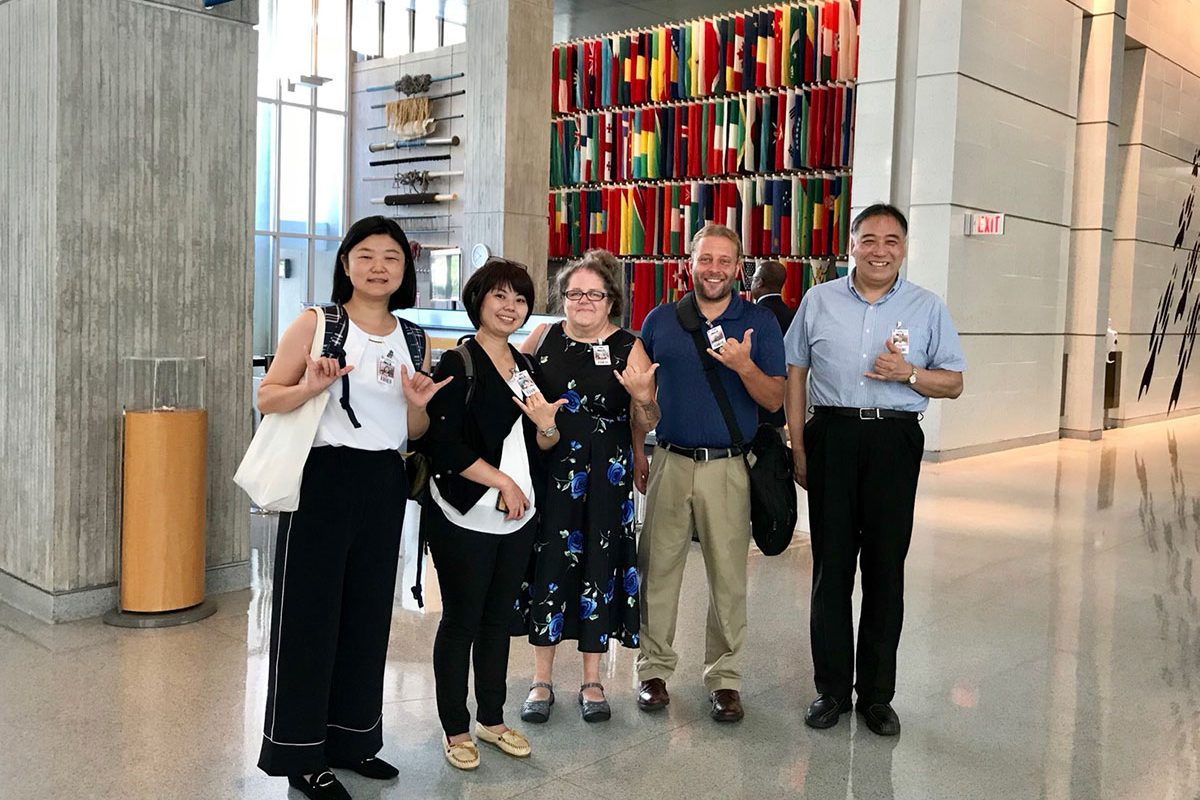Global Perspectives
MEd, Educational Foundations
FAQs
Coursework
No. All courses are online.
Students in this program will complete a cumulative project known as “Plan B” project. These projects are a form of practitioner inquiry. The student will work together with their advisor to design and carry out this project. There are multiple forms that this project can take. See the document linked on this website in the “forms & docs” section that describes the various options for the final product that students can produce.
Students need to check with their Reclassification Department Officer to find out if any course that they take advances them in their schedule. For teachers already in the DOE system in Hawai‘i, it depends on their field of expertise and their school assignment responsibilities. From the UH side, the course needs to be within a degree granting program, and the course content needs to be related to the teacher’s field of expertise. Applications must be filled out with the DOE Reclassification Department.
Other
No. All required interaction is remote. Depending on the flexibility of the participants in each cohort, one of the required summer courses may be offered with a face-to-face option.
Students must be able to follow the course sequence described above, meaning they must be able to take the two classes each semester that are required.
Programs in Educational Foundations are praised for providing perspectives and answers to the “why” questions about the way things work in the educational arena – from the broader international and national systems level to classroom. On a personal level, our graduates come to understand their own values and come to appreciate the reasons why they have chosen education as a professional field. Professionally, our program enables them to feel a sense of belonging to the broader education community and how to make decisions that they believe are best for furthering the advancement of knowledge, their local community, and society. Importantly, our graduates see the forest beyond the trees in their professional decisions and are able to link local to global issues.
Funding
There are many resources available to help graduate students pay for college, including College of Education scholarships. There are also several scholarships listed generally through the STAR website (please note that this is only accessible to students with a valid UH ID number – must be admitted as a student prior to looking for scholarships on this site) and the Financial Support section of the Graduate Division website. For more information on financial aid and additional resources, please visit the UH Manoa Financial Aid Office (finaid@hawaii.edu).
Yes. If you have questions about GI Bill payments, please can contact the University Records Office at 808 956-7952 and ask for a VA rep.
General
Educational Foundations is a field of study that aims to explain education from a variety of disciplinary perspectives, including philosophy, history, sociology, anthropology, politics, and comparative and international studies.

